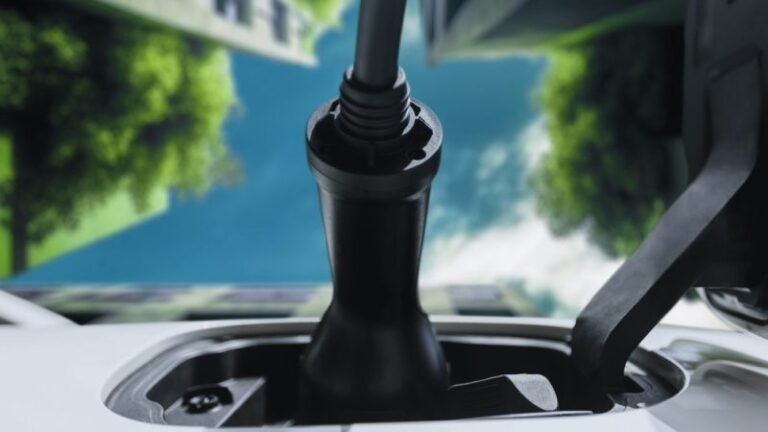On Friday (October 27), the French government announced new funding for the start-up of electric vehicle charging points to match the pace of development set by the EU’s new alternative fuel infrastructure regulation.
Read the original French article here.
France aims to establish more than 400,000 charging points for electric cars on its road network by 2030, including 50,000 fast charging points.
Today, the public network includes more than 110,000 charging points, making France the second best equipped country in Europe, behind the Netherlands and ahead of Germany.
Three thousand charging points were installed every month last year, 15% of which were high-power chargers, which is ten times faster than in 2019, according to Clément Mollison, general delegate of Avere-France, the French association for the development of electricity. Mobility.
Taking into account charging points installed in private homes and businesses, the number of charging points in France currently stands at 1.7 million, Mollison told delegates at an event held by the French Energy Transition Ministry.
But France needs to accelerate its deployment due to new targets approved by the European Union in July with the adoption of the European Alternative Fuels Infrastructure Regulation (AFIR).
Under the new EU regulation, a fast charging station must be installed on major EU transport corridors every 60 kilometers by the end of 2025 and on half of the network for heavy vehicles by the end of 2027.
In addition, the cumulative power of charging points available to the public must be at least 1.3 kW per electric vehicle and 0.8 kW per hybrid vehicle.
New measures
To this end, the government on Friday unveiled new measures to deploy charging stations, with an additional €200 million over the period 2024-2027 – in addition to the €320 million already allocated for the period 2016-2023.
In addition, the Ministry announced an additional assistance of €68 million for the development of fast and ultra-fast charging stations (with a capacity of more than 50 kW) and an increase in the tax exemption for home charging points from €300 to €300. 500 per station.
However, at the current rate of deployments, the network “will soon be insufficient,” warned Sébastien Jumel, director of Enedis, the French electricity distribution grid operator.
A tenfold increase by 2035
By the end of 2023, the total French fleet of electric vehicles (electric and hybrid) will reach 1.5 million units, of which 650,000 will be electric, according to the government.
This figure is expected to rise tenfold by 2035, when the sale of new diesel or petrol cars will be banned across the EU, meaning the number of charging points will have to keep pace.
Only 2% of charging points have saturation problems, says Florie Couronne, from France’s Directorate General for Infrastructure, Transport and Mobility (DGITM).
However, some major French roads are already affected, such as the Montélimar motorway service area in southern France, where installed capacity has to be increased tenfold, Jumel says.
Moreover, “the quantity of charging stations is crucial, but so is the challenge of placing the right stations in the right places, while providing the right power and quality of service,” notes the French Electricity Industry Association (UFE).
In other words, the size of the electricity grid has become an issue.
Network load management
According to industry players, the issue is not the volume of electricity needed to power the future fleet of charging points, as it is expected to represent only about 5% (35 TW) of the installed electrical capacity (615 TW) expected by 2019. French Electricity Grid Director RTE By 2035, Gomel says.
Instead, the problem likely lies in demand management methods.
“There is therefore a big problem in load management,” the Enedis expert points out.
With this in mind, French Energy Transition Minister Agnes Pannier-Ronacher is insisting on the development of a two-way “car-to-grid” charging system to ensure electric cars are able to return electricity to the grid when needed.
Panier Ronacher admits that Germany is “making a lot of progress” in this regard, and believes that the solution also lies in developing lighter, less expensive and less complex vehicles.
After announcing the additional public funding, Transport Minister Clement Beaune said the government would not stop there.
“This is the time to show that electric cars are available to everyone,” he said.
(Editing by Frédéric Simon/Alice Taylor)








